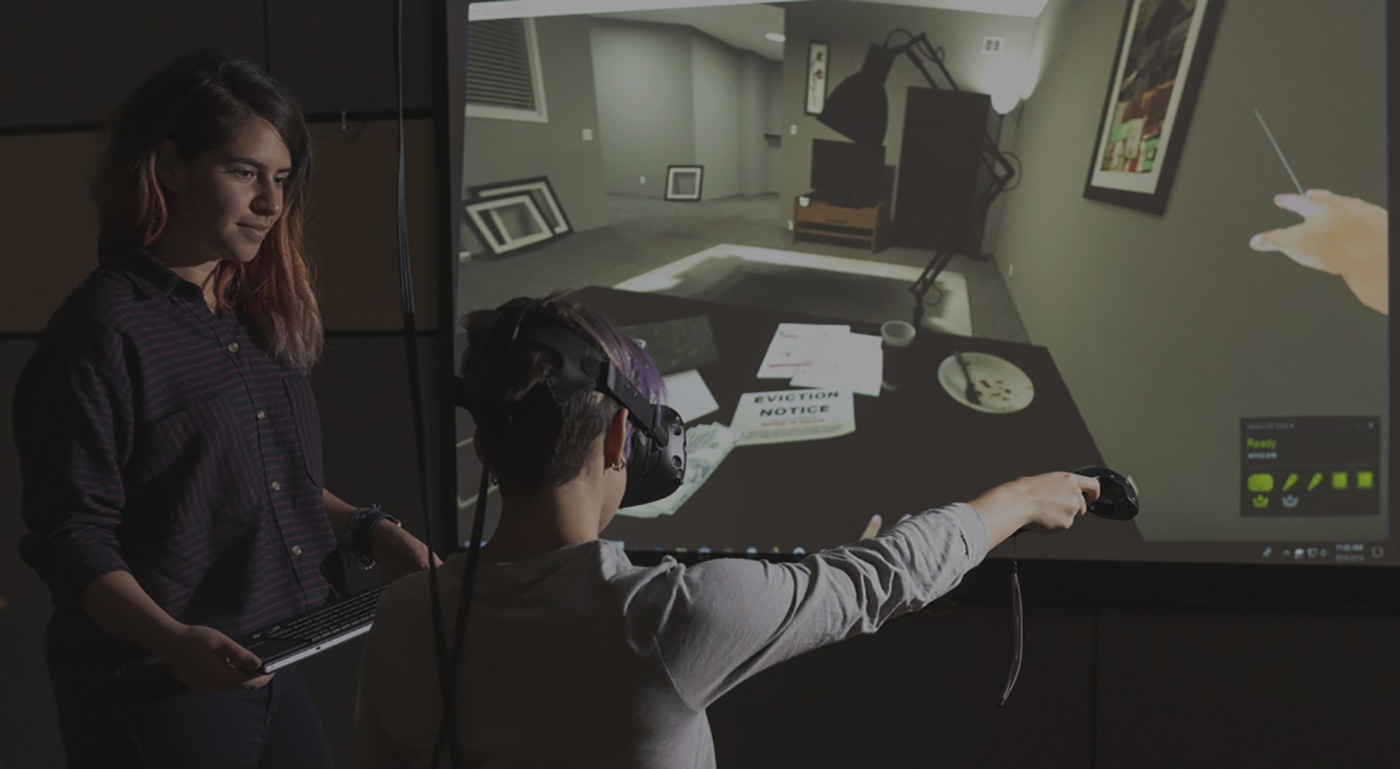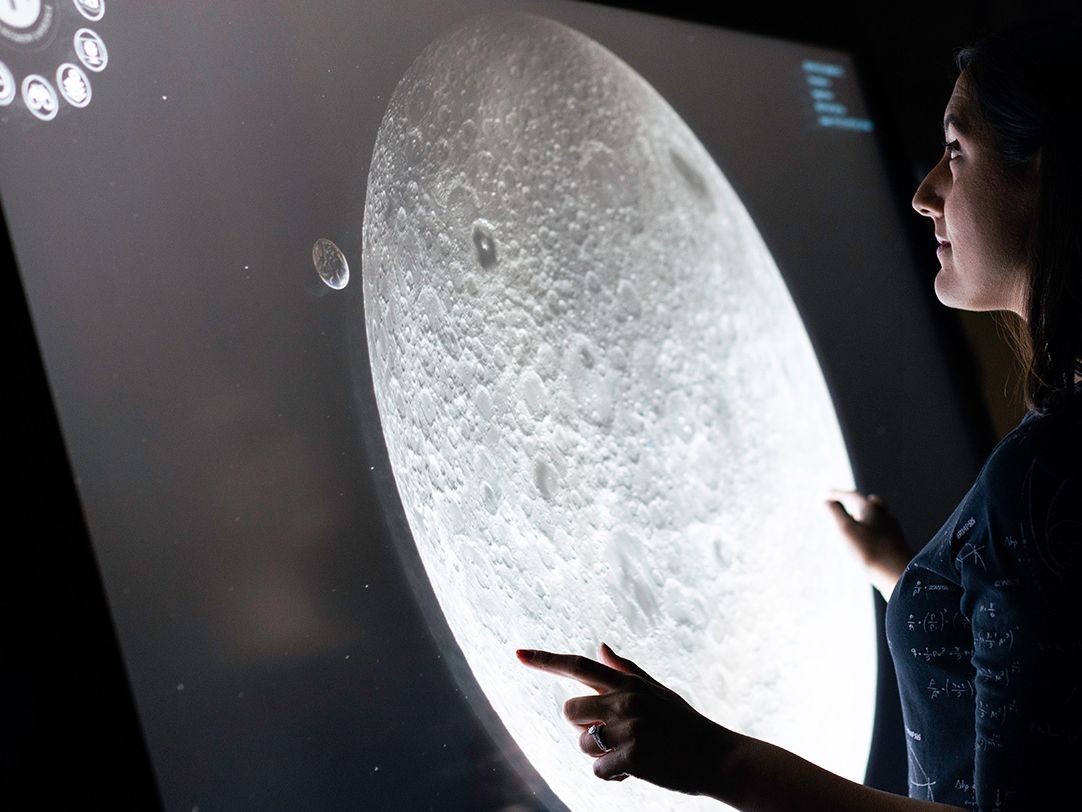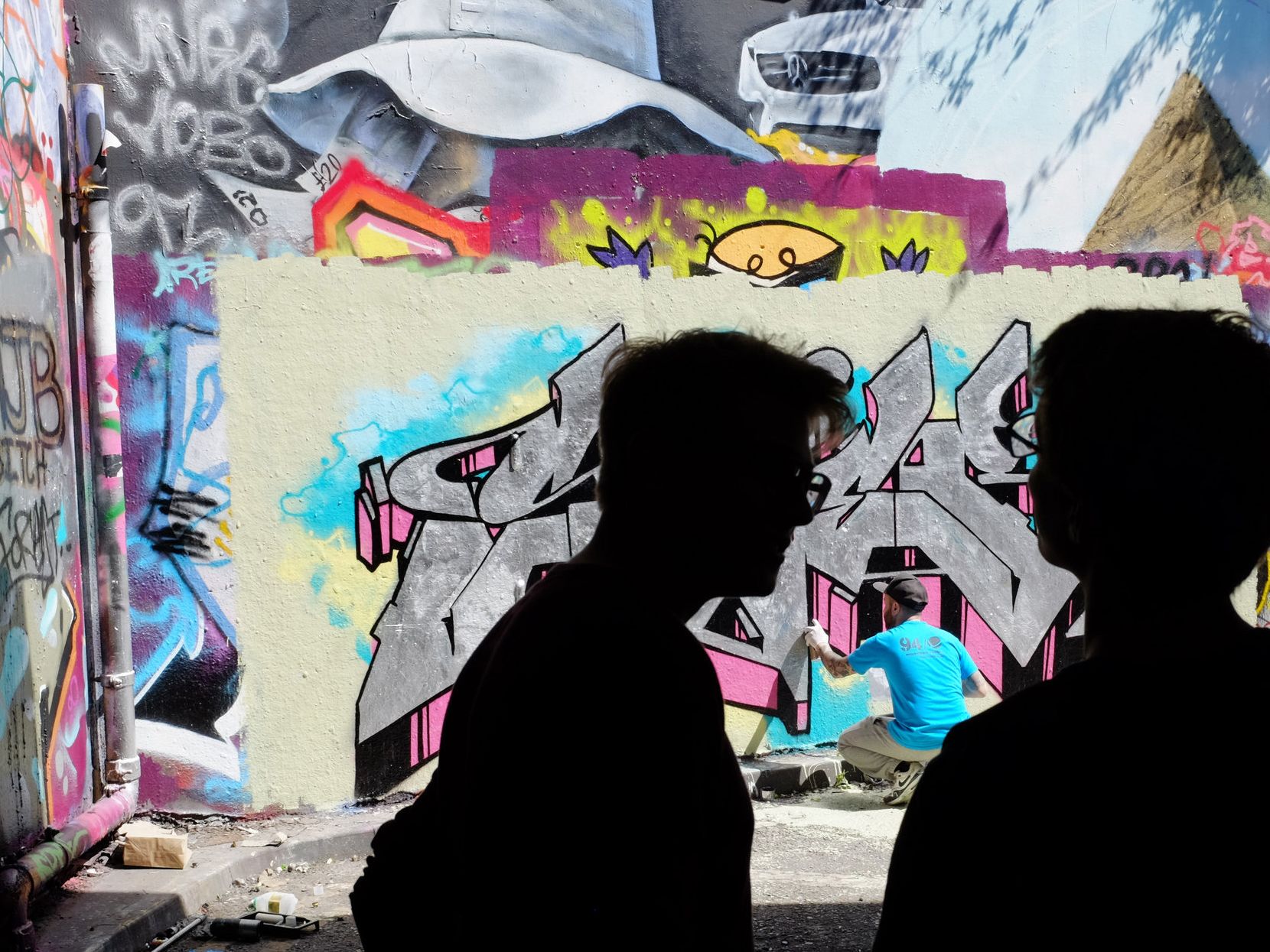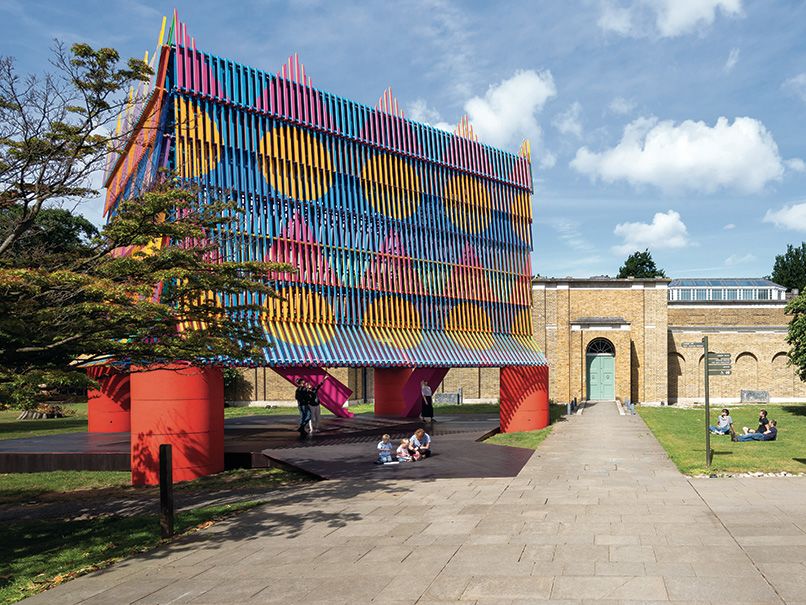ACE IT (Accelerating the Creative Economy Through Immersive Technologies) supports small and medium-sized enterprises in London to develop ground-breaking business solutions through the power of immersive technology.
Delivered in collaboration with London South Bank University, ACE IT brings experts from London College of Communication together with start-ups and SMEs to conceptualise, research and develop innovative products and services. Businesses are supported to create personalised pathways and build key skills through a programme of digital webinars, workshops and panel discussions.
In our ACE IT: Spotlight series, we’ll be catching up with some of our current participants to explore their experiences of the project, and the ways they've started to future-proof their organisations using immersive tech.
Bodyswaps
Innovative start-up Bodyswaps is a soft skills training solution that harnesses the power of VR and artificial intelligence (AI). Drawing together sophisticated learning design, storytelling and behavioural science, its work aims to accelerate learning through self-reflective contextual practice as users interact with virtual characters before 'swapping bodies' and observing themselves from new perspectives.
We chatted to co-founder Julien Denoël about key drivers of behavioural change, the importance of accessing specialist expertise through ACE IT, and his top tips for fellow businesses that are in the process of developing new products.
Bodyswaps | Humanitarian Leadership Academy - Safeguarding VR Case Study
Bodyswaps and the Humanitarian Leadership Academy discuss how immersive VR experiences can be used in safeguarding training.
Hi Julien! Can you tell us a little bit about Bodyswaps?
Bodyswaps is a soft skills training solution that enables students and employees to train in simulated workplace scenarios. Instead of learning how to land a plane or handle an electrical storm, you’re learning how to land a new job or handle a difficult conversation!
We offer simulations around topics like leadership or employability that are engaging, realistic and safe. Just like for a flight simulator, our core principle is that for learning to really stick, it needs to happen in context - especially for soft skills where practice is needed to build the confidence to adopt new behaviours in the real-world.
How would you describe what innovation means in the context of your business?
Innovation is a means to an end, and in our case, that end is to empower people to adopt new behaviours in the workplace, so the technical part - like software development - is not everything.
It’s combining software capability with innovative learning design that really drives change.

What results have you achieved so far, and what obstacles have you encountered during your entrepreneurial journey?
We released the first version of our platform last year and have since received several awards and signed our first clients. The market for immersive learning is exploding, and we’re working harder to keep our pioneering position in that space.
There have been so many obstacles that it’s hard to do a shortlist. I think the human aspect is the most important thing: keeping a balance in your personal life, choosing the right people to work with, and last but not least, to avoid becoming a solution looking for a problem, but instead really trying to get under your clients’ skin to understand what they need.
As a tech SME based in London, why did you decide to join ACE IT, and what sort of support were you looking for?
We came with an open mind, really. When we joined, we had a concept: the idea of swapping perspectives in VR to see yourself act. We had also delivered a couple of projects in very different areas, like psychiatric nurse training and safeguarding training for the NGO sector. We wanted to build a scalable platform out of that, so we looked for support on how to approach our product strategy.
Knowing ACE IT would give us unparalleled access to experts, we decided to do a deep-dive into a specific topic. In our case, it became clear that leveraging the technology as a behavioural assessment tool had a lot of potential, and we needed PhD-level support to make sure we built something scientifically solid.
Bodyswaps | The Susan Project
A user demonstrates how the Bodyswaps platform can be used to train psychiatric nurses.
(TW: suicide mention.)
What has the experience been like working with experts from LCC during this time?
The first highlight was the Design Thinking Workshop - it was an eye-opener for us! We learned a solid methodology to put our learners at the centre of the product creation process, and that approach has stayed with us ever since.
We’re now in that second deep-dive phase, and it has been amazing to see the passion and dedication from the ACE IT team to come up with a research framework that would truly be useful. Not research for research's sake, but rather with a sharp focus on benefitting the user.
Is this your first time being involved in a support programme by a university? How do you think Bodyswaps has benefitted from working with UAL?
It is indeed the first time we’ve taken part in such a programme. What makes it special is really the focus on building a rock-solid solution.
Accelerator programmes are great to help entrepreneurs build a powerful story to raise money, but working with UAL has allowed us to access a level of resource that we couldn’t afford to really improve the product itself. That’s truly unique, and critical.

What are your top tips for a start-up or SME interested in developing a new product?
Wear your incompetence with pride! Soon, you’re going to have to move beyond your comfort zone in product development and learn about funding, recruitment, legal, HR, marketing, sales…etc. There’s no point in reinventing the wheel and doing it all alone.
Realise that you are fundamentally incompetent in most of the areas you’ll need to work in for your project to succeed, and get help. Find people who know their stuff and listen to them. And if you feel that they’re 10 times smarter than you, hire them!

Get involved
If you represent a London-based start-up, micro-enterprise or SME, you could be eligible to join the ACE IT project and receive free, expert support to make your immersive tech ideas a reality.
Visit the ACE IT website to register your interest and find out more about the project.
Credits
This feature was written in collaboration with Alexandra Rodriguez-Cifre, Communications Executive at the UAL Knowledge Exchange, which focuses on the ways in which the University can serve the economy and wider society through the application of specialist knowledge and expertise.
The ACE IT initiative is co-funded by the European Regional Development Fund.
Related links:
- Explore the ACE IT website to learn more about the project and register your interest.
- Visit the Bodyswaps website and follow the team on LinkedIn and Twitter.
- Explore more industry projects and partnerships through Business and Innovation at LCC.





